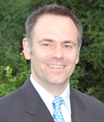IFREE/ESI Lecture Series Presents: Dr. Tim Groseclose “Signaling Games and Media”
May 4, 2012
May 4th,
Tim Groseclose, Ph.D.
–
Signaling Games and Media
Abs

tract:
Cai and Wang (2005) conducted a laboratory simula
tion of the Crawford-Sobel “strategic information transmission” game. The researchers were most interested in observing the amount of inform
ation that senders in the game transmitted to receivers. Consequently, they did not examine what I call the no-policy-bias implication of the game. This implication is that—as the Nash equilibr
ia to the game predict—the final policy that receivers choose, in expectation, should equal the policy that they would have chosen if the senders had sent no signal. That is, the senders should not be able to systematically fool the receivers. Contrary to the Nash equlibria, however, all versions of the experiment produced a policy bias. The results can be explained by a well-established
empirical regularity documented by behavioral economists. This is that people tend to under-estimate the degree to which other people are strategic. I apply these results to the question of media effects. The Cai-Wang results—as well as the models of behavioral economists—suggest that real-world journalists should indeed be able to significantly affect the thoughts and behavior of real-world news consumers.
Bio:
Dr. Tim Groseclose is the Marvin Hoffenberg Professor of American Politics at UCLA. He has joint appointments in the political science and economics departments. He has held previous faculty appointme
nts at Caltech, Stanford University, Ohio State University, Harvard University, and Carnegie Mellon University.
In 1987 Groseclose received his B.S. degree in Mathematical and Computational Sciences from Stanford University. In 1992 he received his PhD from the Stanford Graduate School of Business (specializing in the School’s Political Economics program).
His research has focused on Congress, the media, and mathematical models of politics. He has recently published a book,
Left Turn: How Liberal Media Bias Distorts the American Mind.
He has published more than two dozen scholarly articles, including some published in the
American Economic Review, Quarterly Journal of Economics, American Political Science Review, American Journal of Political Science,
and
Journal of Politics.
He currently lives in Los Angeles, California, with his wife and two children.
For more information on the IFREE/ESI Lecture Series, please visit our website